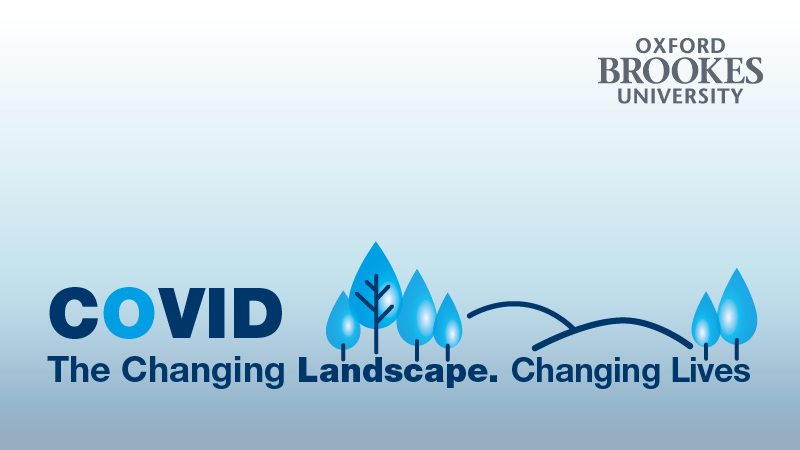Covid. The Changing Landscape. Changing Lives.
How has Covid changed our lives by transforming health and life sciences research?

The Faculty of Health and Life Sciences (HLS) 'Covid, The Changing Landscape. Changing Lives' event coincides with the anniversary of the first Covid lockdown in the U.K. and explores how the pandemic has impacted health and life sciences research, for better or worse. A panel of experts (covering disciplines such as psychology, early childhood development, nursing, and primary care) will discuss the implications of this for our everyday lives as we continue to live with Covid.
Hear from Prof Trish Greenhalgh (the University of Oxford) Prof Vince Connelly (Oxford Brookes University), Dr Cathy Henshall (Oxford Brookes University) and Dr Nayeli Gonzalez-Gomez (Oxford Brookes University). The discussion will be chaired by Prof Paul Carding, Associate Dean for Research and Knowledge Exchange in the Faculty of Health and Life Sciences at Oxford Brookes University.
If you would like to submit a question to the panel before the event please email hlsresearch@brookes.ac.uk
HLS Annual Research Lecture
The evening will culminate with a lecture from Trish Greenhalgh, our nominated guest speaker. Her talk is on ‘Science in the public eye: communicating and debating research findings in real time in a global public health crisis.’ Science is a social act. It takes place in a social, cultural and political context in which particular questions are deemed worth pursuing and other questions are deprioritised or never asked. When the pandemic broke, the scientific community rapidly repurposed its infrastructure and resources to build the evidence base about the nature, spread, diagnosis and treatment of COVID-19. These efforts were shaped and constrained by particular research traditions and scientific practices—and by entrenched regimes of truth linked to hard-won hierarchies of power and influence. Scientists became swept up in the pressure and pace of COVID-19 research and in the increasingly acrimonious debates playing out in both academic and lay media about which (and whose) evidence represented the truth. Post-normal science rapidly morphed from a fringe interest of sociologists of science to become an uncomfortable new reality for university academics who had up to now enjoyed their ivory-tower world. This lecture will use one worked example—the contested field of research on public masking—to illustrate some theoretical ideas about science and science communication in these post-normal times. It explores why, more than two years into the pandemic and with hundreds of published studies, some scientists still believe there is “no evidence” that masks work while others view the efficacy of masking as a well-established “fact”—and why debates between the different “camps” of scientists played out so prominently in the public sphere.
About Trish
Trish is an internationally recognised academic in primary health care and trained as a GP, Trish brought her interdisciplinary perspective to bear on the research response to the Covid-19 pandemic, looking at diverse themes including clinical assessment of the deteriorating patient by phone and video, the science and anthropology of face coverings, and policy decision-making in conditions of uncertainty. She is a member of Independent SAGE, an interdisciplinary academic team established to provide independent advice on the pandemic direct to the lay public.
Attendees will be welcome to stay for a drinks reception after the lecture.
